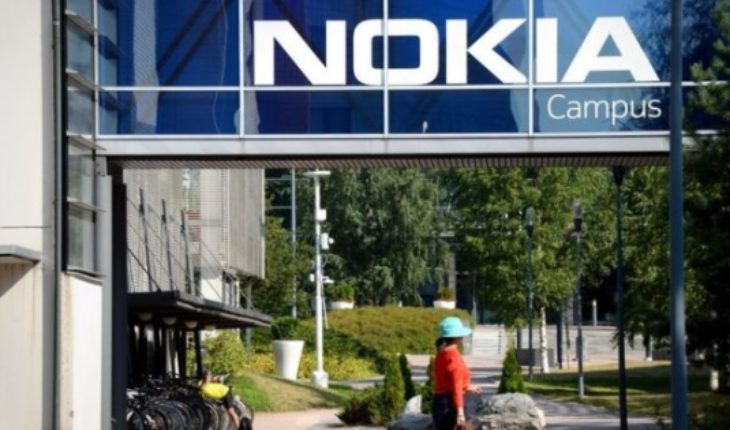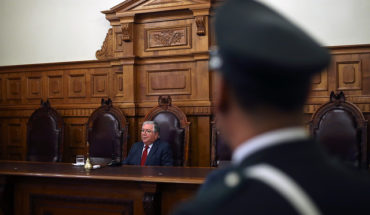Before the United States or Europe perceived Huawei as a national security risk, the Chinese telecom infrastructure giant had already become the most China’s valuable.
According to his own data, annual revenue exceeded US$100 billion in 2018.
The consumer division, the one that manufactures Smartphones or tablets of the brand, it is the one that reports the most revenue, but it is another type of customers who have raised concerns about the possible Chinese influence.
Huawei is the world’s largest company selling telecommunications equipment, including governments, institutions, operators and utility companies around the globe.
How Huawei became one of the world’s most controversial technology companies
He is a dominant player in 5G or fifth generation networking technology, which will allow us to connect massively to the things around us.
Only four firms can challenge him to the throne in the deployment of 5G networks and among them, you may be surprised to learn that there are the European ones Nokia and Ericsson, which are seen as the best option by Western economies.
Nokia currently has only 1% of the global mobile market and Ericsson exited it. Huawei, meanwhile, is the third most mobile company in the world.
They don’t compete in that market, but in the 5G market, things are different.
Customer financing
A diary report Financial Times noted these days that the United States would be considering channeling funds to both companies so that they can offer their customers the same advantageous payment terms that Huawei gives its own.
According to the revolving, for Washington that advantageous financing is one of the factors that has led the Chinese company to sign more agreements than anyone else.
Huawei leads 5G technology, which is expected to reach Latin America in 2020.La company has already signed 46 contracts to develop 5G in 30 countries, chinese news agency Xinhua reported, while Nokia would have achieved about 42 and Ericsson 10 until June.
The U.S. goal, analysts agree, remains the same as when it put the Chinese giant on the list of companies that can’t buy technology from any U.S. company without Washington’s permission: to curb Huawei’s expansion.
Many countries believe that the company poses a danger because of its ties to the Chinese government.
Desperate search
A senior government official, whose identity was not revealed, told Financial Times: “We gave up our superiority in the manufacture of telecommunications equipment decades ago, and now we are realizing that this might not have been the best decision for national security reasons.”
“Almost every department and agency (in the United States) is desperately looking for ways to get back in the game.”
What’s behind the new U.S. veto of Chinese tech companies (which raised tensions with Beijing)
The European Union also encouraged countries this week to assess the “risk profile” of individual suppliers suffering from “interference” from countries outside the EU.
Nokia, the company that revolutionized the mobile industry in the late 1990s has helped the economy of Finland prosper.So Nokia may no longer be the leader that was in the manufacture of smartphones, but still has an important role in the sector, especially in 5G.
Among the companies you will work with are T-Mobile, Telia Company or Softbank.
The importance of patents
According to research by IPlytics, Nokia is the second technology in the world with the most 5G patents (1,427) after Huawei, which has 1,554.
In fact, he expects to win $3.35 in royalties for every Smartphone sold with 5G.
However, Chinese companies are still at the forefront of about 34% of patents, followed by South Korea (24%), the United States and Finland, with 14% each.
Why the new Nokia 9 PureView phone with 5 cameras is a risky step for the Finnish company
The Finnish company will also be key to the infrastructure and claims to offer a “single window” for 5G thanks, among other things, to a series of chips that reduce costs and improve performance.
For its part, Sweden’s Ericsson is also driving 5G, especially in terms of infrastructure.
It is mainly dedicated to the manufacture of mobile telecommunications equipment.
Ericsson has had to provision its accounts to $1.2 billion pending the outcome of a corruption investigation. It has agreements with Verizon, with which it launched the world’s first 5G service and is developing a “5G platform” to help transition from 4G.
Its managers announced in February at the Mobile World Congress 2019 in Barcelona, Spain, that it has commercial agreements with at least 10 customers of service providers.
“Ericsson has already sent more than three million 5G-ready antennas to its customers worldwide,” Ericsson’s president and CEO, B. Ekholm, said.
Huawei founder’s “extraordinary offer” to ease tensions with the U.S.
However, the Swedish company is facing an investigation in the United States over signs of bribes abroad for which it has had to provide – departing from its capital to face possible fines – up to $1.2 billion.
Ericsson said the deployment of his 5G would be affected after this move.
The group reported last Thursday that it had identified violations of the U.S. Foreign Corrupt Practices Act in China, Saudi Arabia, Kuwait, Indonesia, Djibouti and Vietnam.
translated from Spanish: Huawei: how historic Nokia and Ericsson rival Chinese company in the development of 5G
October 10, 2019 |





